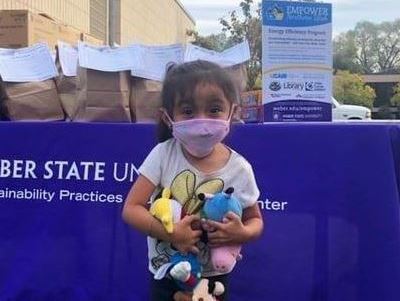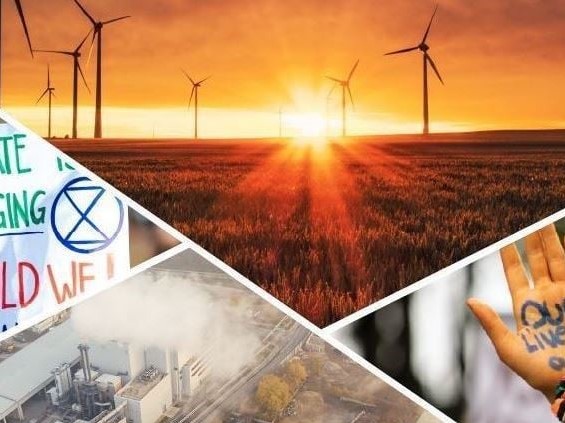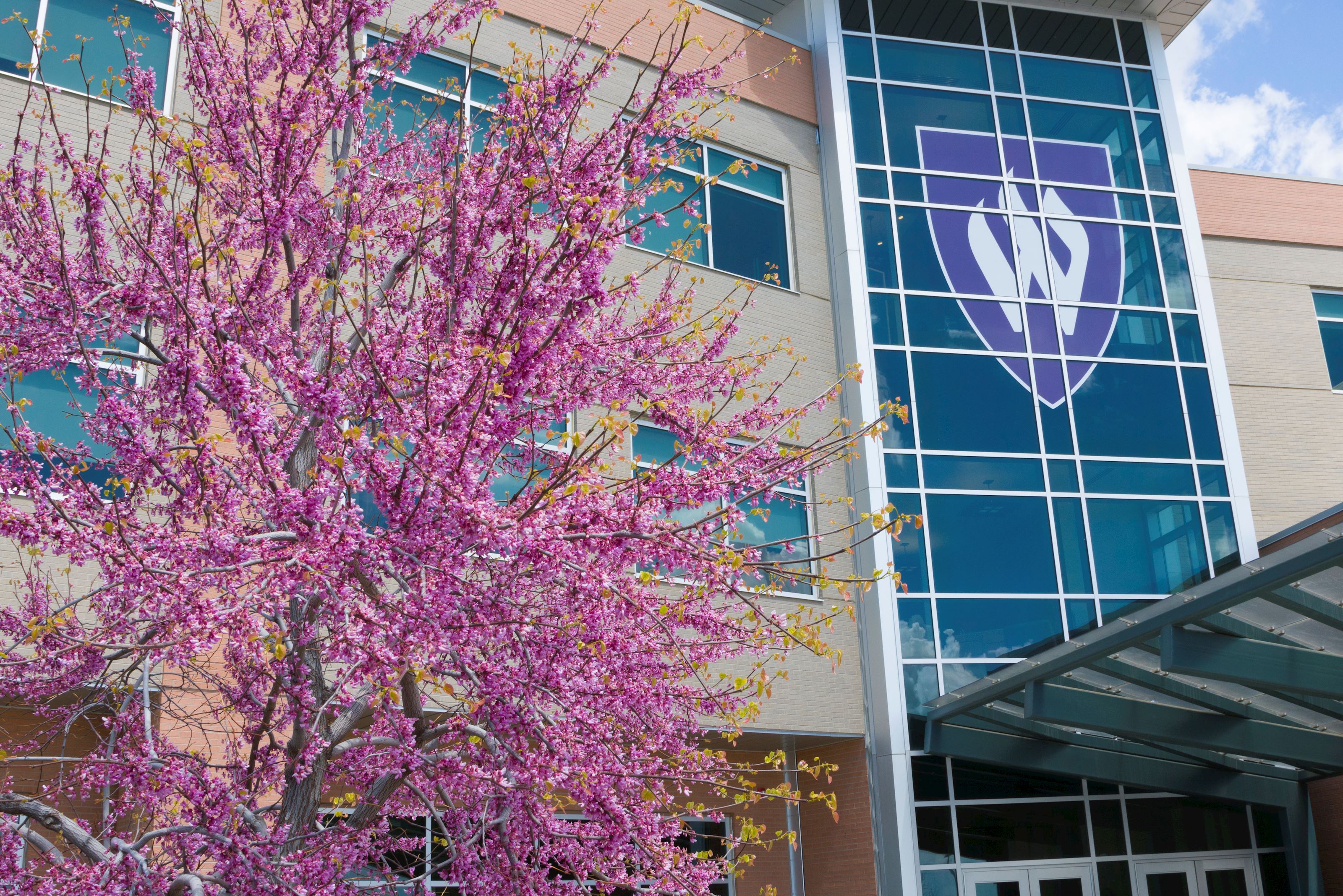
October WSU Sustainability Newsletter

Empower Northern Utah Lightbulb Exchange Extended
WSU Sustainability’s Empower Northern Utah Energy Efficiency program has more highly efficient LED light bulbs available for exchange, available to Weber and Davis County residents. Participants are encouraged to bring up to 10 old incandescent or CFL light bulbs to exchange for new LED bulbs at no cost. The light bulb exchanges will be held on Saturday, October 24th, from 10:30am – 1:30pm at Weber County Library Main Branch. Reach out to Chase Wilson with questions at wilsonchase@weber.edu.
%20(1).png) President Mortensen Joins in Signing Utah's Climate & Clean Air Compact
President Mortensen Joins in Signing Utah's Climate & Clean Air Compact
On October 7th, Weber State President Brad Mortensen joined with more than 100 signatories to sign the Utah Climate & Clean Air Compact, a commitment to address air quality and climate change issues in Utah.
President Mortensen said in a Salt Lake Tribune op-ed, “This nonpartisan, pragmatic directive is the first of its kind in the country and situates Utah to lead the way as a conservative state in climate and clean air solutions.”
Signatories represent business, government, faith, and civic institutions. Signatories stated, “We join this Compact as responsible stewards. Climate change and air quality represent urgent challenges for our health, families, and economy. We call upon state and community leaders, members of Congress, businesses, and all Utahns to adopt the mileposts of the Utah Roadmap.”
The Utah Roadmap focuses on health, clean air, the economy, and investment in rural areas, which are especially impacted by a transition to clean energy.
A full list of signatories, and more information about the compact, can be found at climateandcleanaircompact.org.
 Upcoming Sessions in the Climate Change & Culture Shift Series
Upcoming Sessions in the Climate Change & Culture Shift Series
Sessions in the Climate Change & Culture Shift speaker series cover a range of topics. The next in line will be October 20th on institutional change and influence with a presentation on Weber State’s approach and success in achieving its climate action plan goals. The October 27th session will take our focus to Europe, specifically the recent historical heat waves in Paris and the societal response there. Details for the next three Tuesday sessions, all held at noon via this Zoom link, are below, and the full series calendar can be found here.
Oct. 20 – “Shifting Institutional Culture and Challenging Professional Norms: How WSU is Achieving and Exceeding its Climate Action Plan Goals,” presented by Jennifer Bodine, WSU Sustainability Manager; Jacob Cain, WSU Director of Operations; Mark Halverson, Associate VP for Facilities and Campus Planning, WSU
Oct. 27 – “Paris is Burning: Heat Waves and Social Precarity in France,” presented by Dr. M. Brady Brower, Professor of History, WSU
Nov. 3 – “Climate Action Planning, Vulnerable Communities and Resilience,” presented by
Dr. Daniel Mendoza, Research Assistant Professor, Department of Atmospheric Sciences, University of Utah
.jpg) Sustainable Actions Webinar- Food Sustainability
Sustainable Actions Webinar- Food Sustainability
WSU's Green Department program and WSU Sustainable Clubs are hosting monthly sustainability themes to help keep engagement opportunities alive during this virtual era. At the beginning of each month a webinar will introduce a different sustainability theme.
November’s theme is Food Sustainability. The webinar will be on Wednesday, November 4. RSVP to Kyiahill@weber.edu for the webinar’s link.
.jpg) Composting at WSU
Composting at WSU
The Shepherd Union Building offers a composting bin for student, faculty, and staff use located to the right of Einstein’s Bagels, under the stairs on the first floor. Departments involved in the Green Department program have been given an office compost bin. Items that can be composted include:
- coffee grounds and filters
- raw fruits and vegetables
- tea bags
- egg shells
- non-wax paper products like cups, plates, and clean napkins
Items that should not be added to the compost bin, as they create odor and attract pests, are dairy products, oily foods, and meat products. Similarly, styrofoam, glass, plastics (including biodegradable plastics), metal, and used tissues or napkins should not be placed in the compost bin. After a few months, the compost is ready to incorporate into soil at locations such as the Weber State Community Garden located behind the residence hall on the main campus.
Composting is an easy and convenient way to reduce greenhouse gas emissions in our community. It’s a step that contributes to our becoming a carbon neutral campus!
 WSU Is Sharing Sustainability Nationwide
WSU Is Sharing Sustainability Nationwide
Weber State University has set an example for cost-effective and creative solutions to reduce carbon emissions and utilize resources efficiently. Consequently, staff within the Energy and Sustainability Office and the Sustainability Practices and Research Center have been accepted to present at the Association for the Advancement of Sustainability in Higher Education’s (AASHE) annual conference to showcase their projects. The projects described below will be shared through the virtual conference later this month.
Using Research to Improve Water Sustainability at Weber State University
– Sadie Braddock, Student Sustainability Coordinator and senior geography major at WSU studying environmental studies and sociology, and Breanna Childs, a fourth-year WSU student in sociology
Sadie and Breanna conducted research that investigates attitudes, beliefs, and perceptions towards water and water use held by various stakeholders at Weber State. Through this study, they hope to gain further suggestions towards future water sustainability management practices on campus and address Weber State University's water sustainability efforts in an attempt to provide tips and insights that others can implement at their institutions.
Low Income Solutions for Saving Energy and Weber State University’s Light Bulb Exchange
– Chase Wilson, Assistant Sustainability Coordinator in WSU Sustainability Practices and Research Center and Ogden City's Natural Resources and Sustainability Stewardship Committee member
Weber State University has focused on sustainability-forward community programs over the last five years that aid underserved and underrepresented populations. During WSU's Fall 2019 community program entitled Empower Northern Utah Light Bulb Exchange, over 480 households traded in their old, inefficient incandescent and CFL light bulbs for new, high-efficiency LED bulbs at no cost. The presentation will show participants the role higher ed institutions can serve in empowering communities to move forward in easy, sustainable ways. Empower Northern Utah benefited the environment, saved community members money, and demonstrated that sustainability is an attainable goal that benefits everyone -- not just those with the luxuries of time and wealth.
ASHRAE Guidelines & Solutions for University Energy Programs Going Forward
- Justin Owen, WSU Energy and Facilities Manager, and Jonathan Mesik, Mechanical Engineer & Principal, DLR Group
The COVID-19 pandemic is forcing university energy and sustainability teams to overcome new challenges in managing energy costs and reaching reduction goals. All three course delivery formats, in-person, remote, and hybrid, present multiple concerns surrounding building health, reducing costs, and the future of optimization programs moving forward.
This webinar explores ASHRAE guidelines for university building readiness, discusses how one university is adapting future programs and priorities in response to COVID-19 impacts on its campus, and suggests quick wins to save energy costs during shutdowns and partial reopens.
